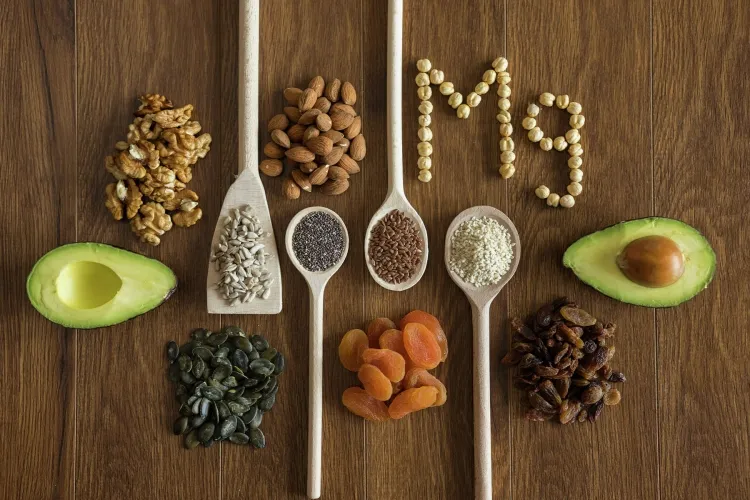Should people in their sixties take vitamins? There is no age limit for taking them in general. Strengthening the body and the immune system is equally important for children and adults. What must be specified is the type of vitamin and supplement according to the needs. Each age has its own vitamins! If you feel muscle weakness, take vitamin D. You have eye problems, include more vitamin E in your menu. What about vitamin B complex? If you are over 60, ask your GP what vitamins to take after 60 and which diet to choose.
Why is it important to specify what vitamins to take after 60?
It is common knowledge that vitamins and minerals help the body function and keep it healthy. And as we age, our nutrient needs may change.
Older people often need higher levels of certain vitamins and minerals to stay healthy because the body becomes less efficient at making, processing and absorbing them. Although diets are followed for two main purposes: weight loss and improved health, there are two that “work” for longevity as well. These are the Mediterranean diet and the Japanese Okinawa diet. By studying their components we understand what vitamins to take after 60 years of age.
The function of nutrients is to prevent and slow the decline of various body systems, such as the brain and the vision. After a certain age, you run a higher risk of developing certain diseases, and this risk can be increased by the lack of certain nutrients.
While most of these can be obtained through a healthy, balanced diet, it may be necessary to take certain supplements or multivitamins to meet your body’s nutritional needs.
What are the most effective vitamins to take after 60?
As health professionals say, the first “medicine” in everyone’s life is healthy food. Supplements are an addition to the diet and one who eats healthy should use them wisely.
Vitamin D has a constructive role, important for the formation of bones. It helps the body absorb and use an essential bone mineral, calcium, which ensures strong muscles and healthy nervous and immune systems. Low levels of vitamin D can lead to decreased muscle strength, increasing the risk of falls. Research has shown that deficiency is associated with several health problems, including osteoporosis, decreased brain function, heart disease, high blood pressure, diabetes, and even cancer.
As you age, it is imperative to get larger doses of vitamin D for two reasons. The first is the decreased efficiency of the skin to absorb it from the sun and the second is the decreasing kidney function it converts vitamin D into a form the body can use.
The data reveals that the recommended daily requirements are 600 IU (international units) for people under 70 and 800 IU for those 71 and over. However, the International Osteoporosis Foundation recommends 800-1000 IU for all older adults and up to 2000 IU for people who are obese, have osteoporosis, or have very limited sun exposure, such as those in a nursing home or who are homebound.
Because everyone’s vitamin D needs are unique, there is no set optimal amount. Where to get it? Too much vitamin D can be harmful as it can lead to confusion, kidney stones and even death from irregular heartbeats.
Why get calcium after 60?
Along with vitamin D, calcium is an essential mineral for the formation and maintenance of bones and teeth. It also supports muscle cell function and helps nerve cells transfer important messages between the nervous system and the rest of the body. A proper level of calcium in the body slows bone loss and protects against fractures and osteoporosis. With advancing age, particularly in postmenopausal women, there is greater bone loss and inefficient absorption of calcium from food. For those who have banished meat from their menu, there are many plant sources of calcium.
For a woman from 51 to 70 years old, the recommended dose is 1200 mg per day, and for a man in this age group, 1000 mg per day is enough. Calcium overdoses can have adverse effects.
What are the recommended doses of vitamin B-12?
When you have a vitamin B-12 deficiency, you may feel tired, weak, or constipated. Other warning signs are loss of appetite and weight. Developing anemia is also possible. Low amounts have been associated with dementia, confusion, walking problems and poor memory. Fortunately, on the one hand, it is often stored in the liver for many years and can be drawn from there. But on the other hand, it may be more difficult for older people to absorb the vitamin from natural food sources because of digestive problems. To maintain a healthy level of vitamin B-12, one should get 2.4 mcg per day.
Regarding the proper level of vitamin B6, a woman over 60 should take 1.5 mg per day and a man 1.7 mg per day.
How to provide magnesium that is involved in many processes?
Although it is abundant in many foods, most adults do not get enough magnesium from their diet. Besides its role in building muscle, bone, and nerves, the mineral regulates blood sugar and blood pressure. An elderly woman should take 320 mg per day from her diet and a man 420 mg per day. Opt for magnesium-enriched foods, such as cereals and breads and even some water sources.
When we say magnesium, we also say potassium. If there is a lack of potassium in the body, blood pressure problems arise, kidney stones form and bone density decreases. Low levels of potassium can lead to trouble with other nutrients, such as calcium and magnesium.
A woman over 60 should take 2600 mg of potassium per day and no more. The maximum dose for a man of this age is 3,400 mg per day. Too much potassium can be deadly, or at least lead to paralysis. Sometimes cardiac signaling is disrupted, which will cause abnormal heartbeats and even death.
The combination of movement and nourishment containing the vitamins and nutrients necessary for health will ensure your longevity and spiritual comfort.





